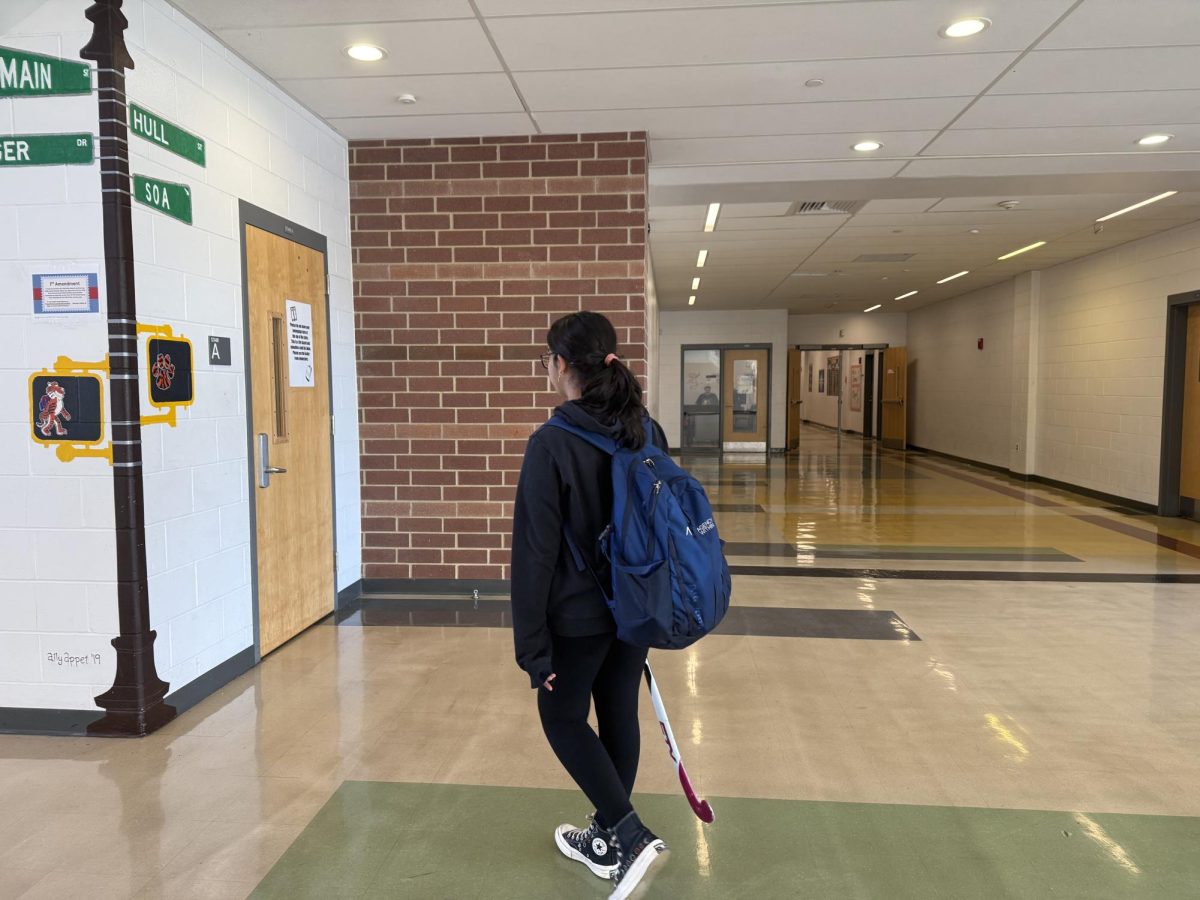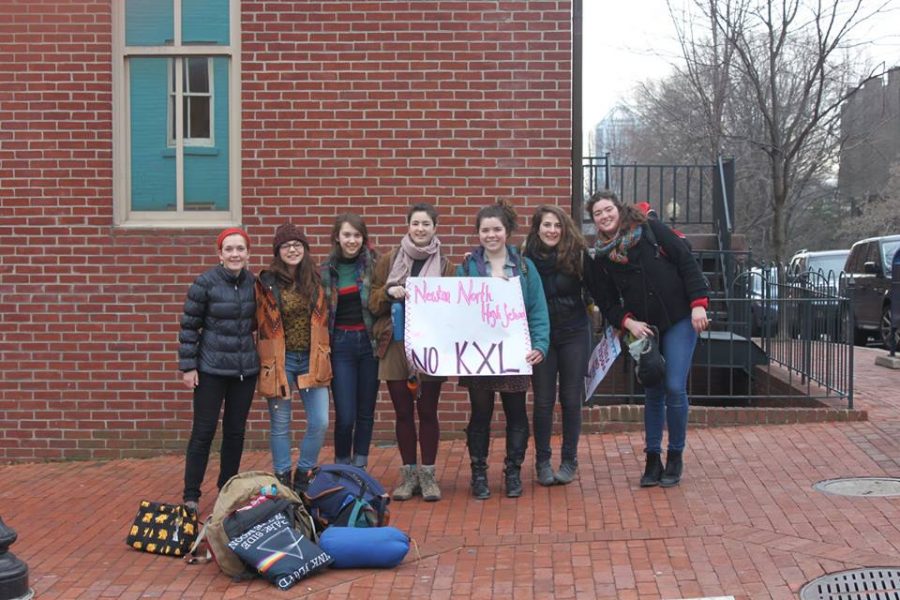by Sophie King
Students from this school joined hundreds of others from across the nation Sunday, March 2, in Washington, D.C., to protest Keystone XL, a major oil pipeline expansion. The event, called XL Dissent, resulted in hundreds of arrests, according to CNN.
Seniors Maria Lubin, Amiya Seligman, and Sophie Sokolov, juniors Lucy Beizer and Kerry Brock, and sophomores Natalie Cohen and Gloria Singleton-Kahn made up the group of students from this school who spent the weekend in D.C. They are members of a local chapter of the state-wide coalition Students for a Just and Stable Future.
According to Sokolov, the students took a bus down Friday at 11 p.m., spent Saturday doing trainings and workshops, and marched through Washington Sunday.

Sunday, students marched from Georgetown University to the White House, carrying signs and shouting chants like “Hey Hey Ho Ho Keystone Pipeline’s Got To Go” and “Hey Obama We Don’t Want No Pipeline Drama,” according to Sokolov.
The students also marched to Secretary of State John Kerry’s house, as he will play a major role in the decision regarding approval of the pipeline.
According to the website of XL Dissent, problems with the pipeline include the destruction of ecosystems, public health problems such as increased cancer rates when the oil is extracted, violations of treaties of indigenous groups, risks of spills involved in transportation, and the pollution caused when it is burned.
Students lay down on massive sheets of black plastic, forming a “human oil spill”, outside both the White House and on Kerry’s doorstep, according to Sokolov. In addition, 398 people ziptied themselves to the White House fence, she said. She noticed many passersby watching and filming them, and the protesters were shown on CNN.
It was not long until the police began arresting people. Brock described this as “scary and exciting,” because many of the protesters went into the action knowing that this was possible, and expecting arrest. They wanted to make a point, she said.
Cohen said she and other students left after the police warning because the organizers of XL Dissent had asked that the protesters under the age of 18 try to avoid arrest. Those who left the arrestable portion of the protest stood on the other side of the police barricade, singing to those remaining chained to the fence and offering moral support through the rain.
“There was a healthy respect between between the people there and the police; we weren’t there to fight the police,” said Brock.
Students described the protest as an empowering experience. “It was powerful to be surrounded by people who feel that same way,” said Sokolov, adding that it was “the defining protest of our generation.”

Brock had a similar view on the importance of youth protests: “we’re the generation that will be experiencing catastrophic consequences if we don’t do anything about it,” she said.
Supporters of the pipeline say that it will create tens of thousands of jobs, bring billions of dollars to the U.S. economy, and contribute to the energy security of the U.S., according to the website run by the company involved in the production, TransCanada.
The U.S. Department of State’s latest environmental report on the pipeline suggests that there would be few environmental problems caused by the pipeline, but Sokolov described the report as a “sham”. A consulting firm working on the report previously worked for TransCanada, according to a conflict of interest report submitted to the U.S. Department of State in 2012.
During the workshops Saturday, March 1, the students also learned about the issue of “campus divestment,” which is a movement to encourage colleges to divest from fossil fuel companies. “We do not want our education paid for by immoral companies,” said Sokolov.
Surrounded by mostly college students from 42 states and 80 different colleges, according to Sokolov, the students from this school valued their experience interacting with college activists.
“A lot of what I took away from it was the excitement of being with like-minded youth,” said Sokolov.
Cohen said that they were the only high school students on the bus, and described their anticipation on the way to the rally. “I was really proud that we could do something even though we are so young,” she said.
“It wasn’t an easy weekend,” said Brock, referring to the sleep deprivation and amount of walking, “but to experience the protest made everything worth it.”
Students discuss protest experiences
March 21, 2014
0
Donate to The Newtonite
More to Discover













































